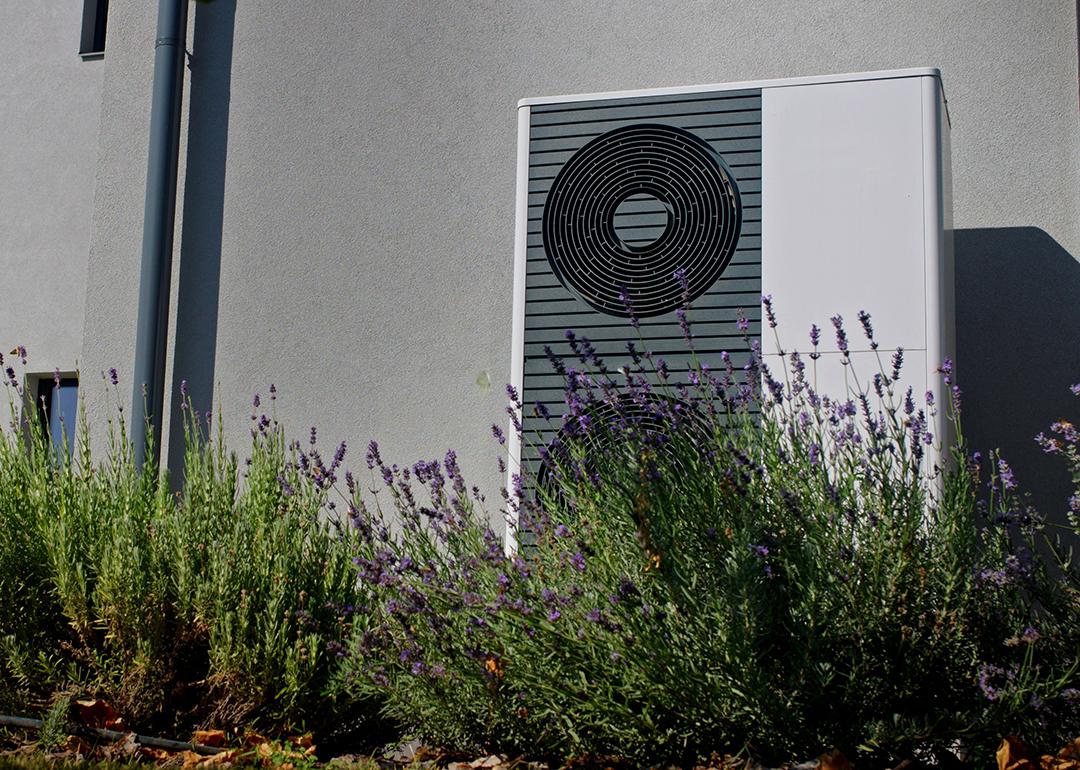Why most Americans consider going green in home upgrades: Their wallets
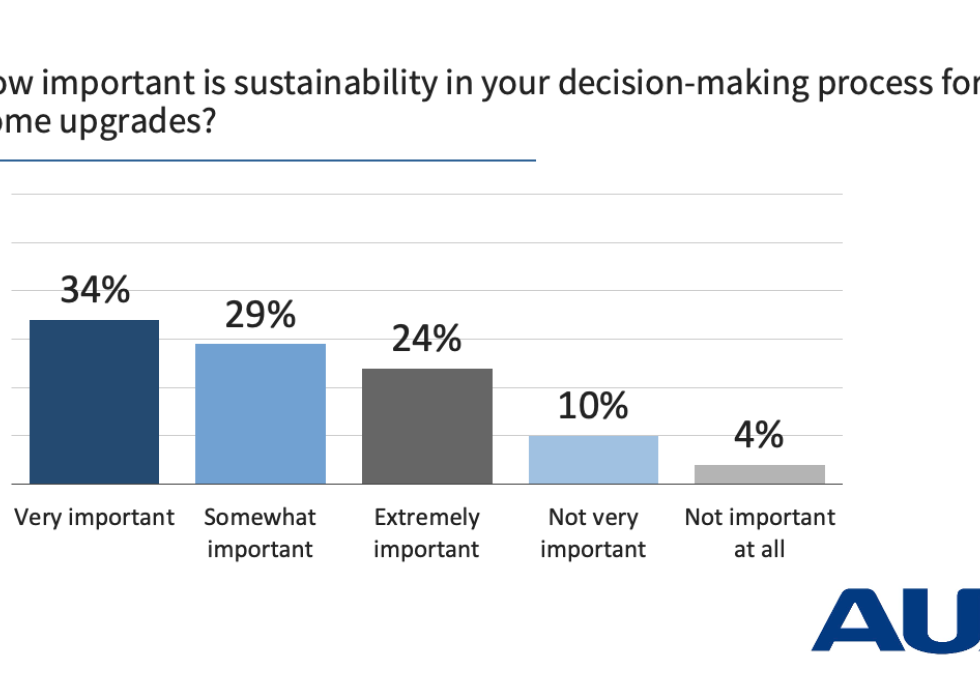
Most survey respondents cited sustainability as a key component when considering home upgrades.
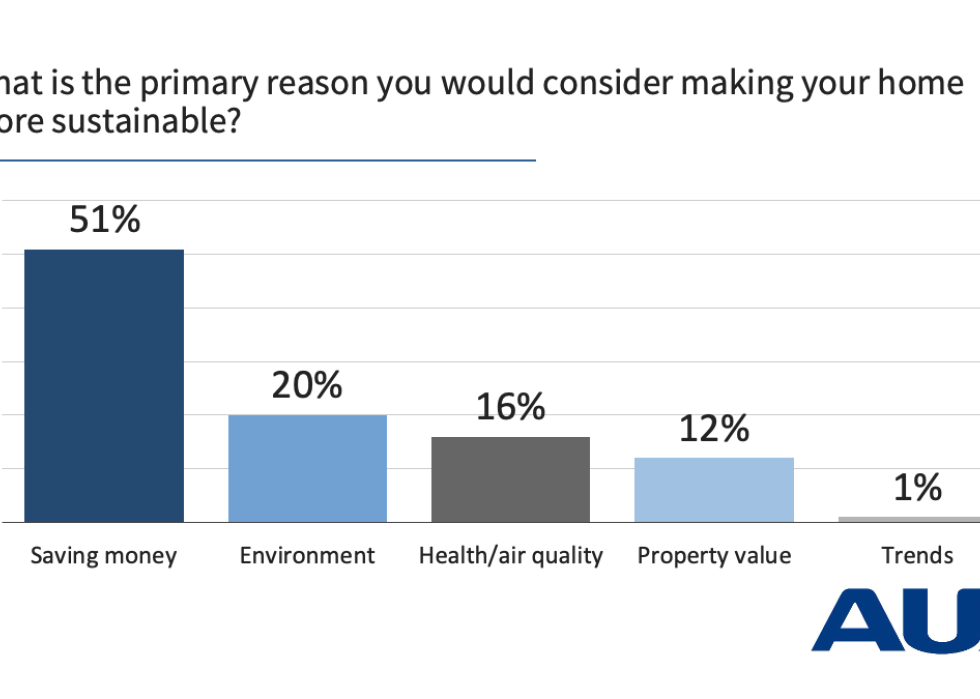
More than half—51%—said their main concern when looking at sustainable options for home improvements was to save money on their energy bills. Less than half of that number, just 20%, said that reducing their home's environmental impact topped their list of concerns, and just 16% said improving their in-home air quality was their number one priority.
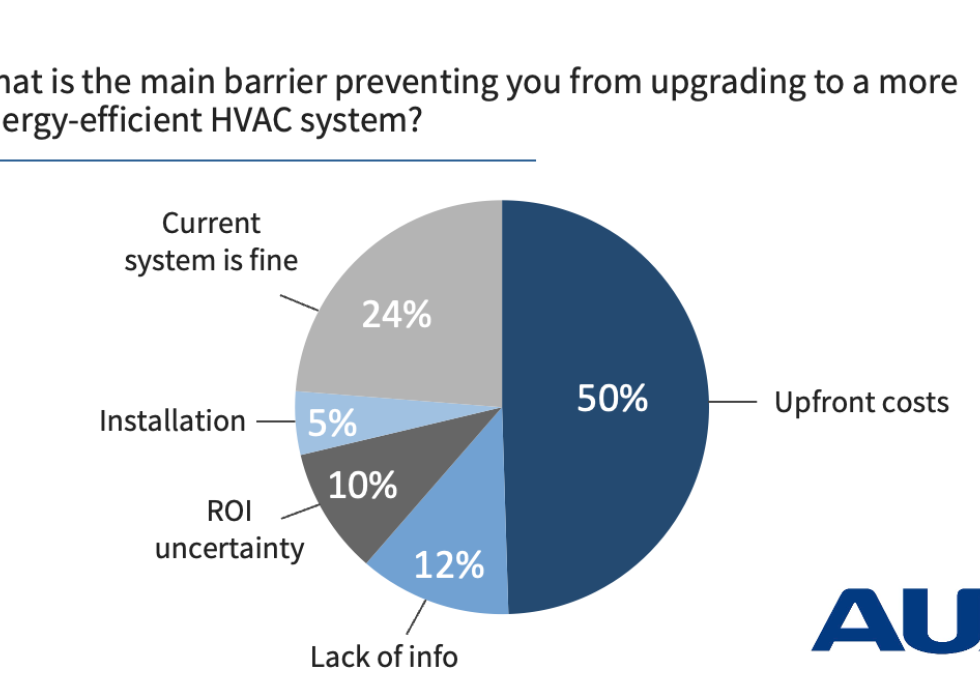
Most Americans recognize that their heating and cooling system is the biggest energy drain in their home, and a key area where sustainable options can significantly reduce cost. However, the biggest barrier remains the upfront expense.
Over the past few years, the HVAC industry has faced consistent price increases, driven by a variety of economic factors. Rising costs of raw materials like copper, aluminum, and steel have put upward pressure on manufacturing expenses, which are then passed on to consumers. Additionally, broader supply-chain disruptions and labor shortages have further contributed to higher equipment and installation costs. These trends are reflected in price increases for both standard and high-efficiency systems, with average installations ranging from $5,000 to $15,000 depending on system type, home size, and complexity.
For homeowners interested in sustainable options, such as energy-efficient HVAC systems, these higher upfront costs can feel daunting despite the potential for long-term energy savings.
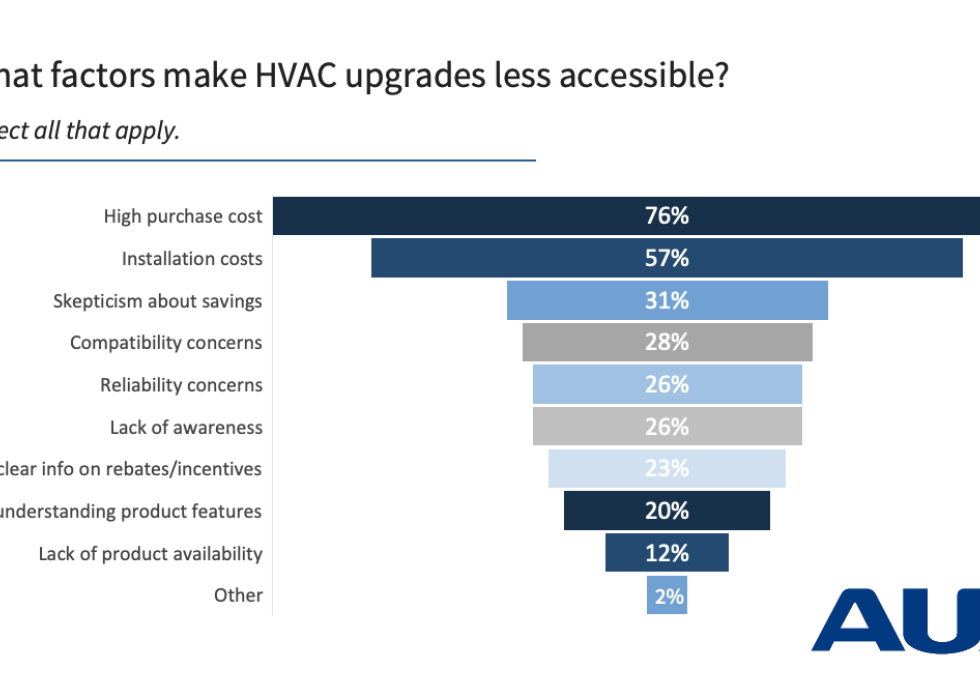
What most respondents said made sustainable HVAC options inaccessible wasn't a lack of knowledge of the technology or doubts about its ability to deliver on promised energy savings. It was the cost to purchase the equipment and the installation.
Depending on local policies, government rebate programs and energy incentives offer a powerful solution to offset those costs. However, there seems to be a gap in awareness: 62% of homeowners are either unfamiliar with or lack detailed knowledge about these programs.
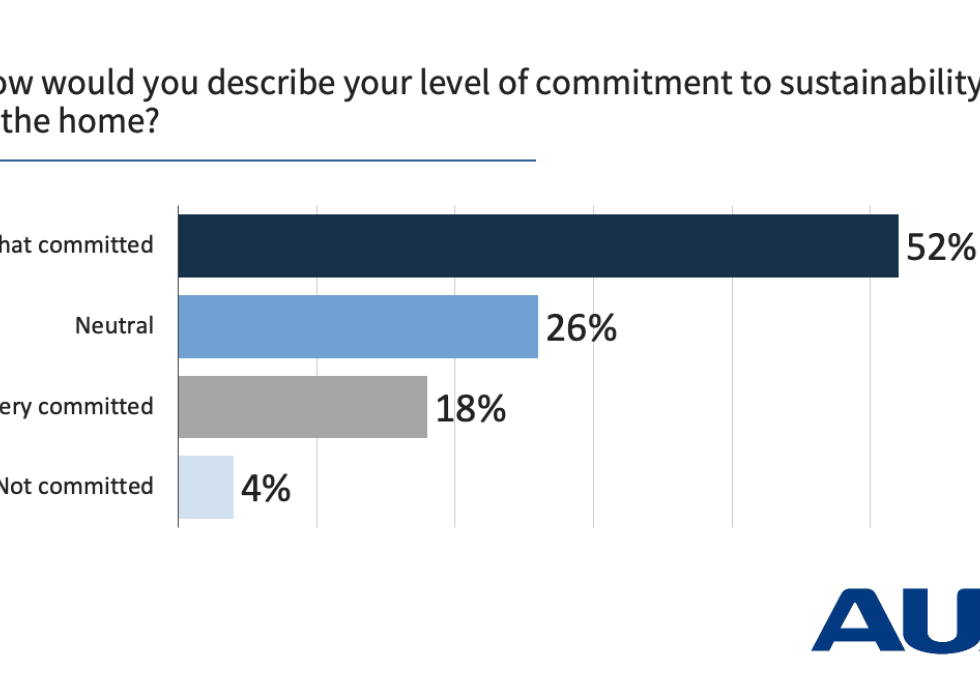
Even with the cost challenges associated with sustainable home upgrades, a significant majority of Americans remain committed to incorporating sustainability into their living spaces. According to the survey, 70% of respondents indicated they are either actively making changes in their home to make it more sustainable or are seriously considering such changes.
This commitment, despite financial hurdles, reflects a growing awareness of the benefits of sustainability beyond environmental considerations. While the primary driver for many is financial, there is also an increasing recognition of the added value sustainability brings to their homes. From increasing property value to improving indoor air quality, homeowners are weighing the multifaceted benefits of greener upgrades.
